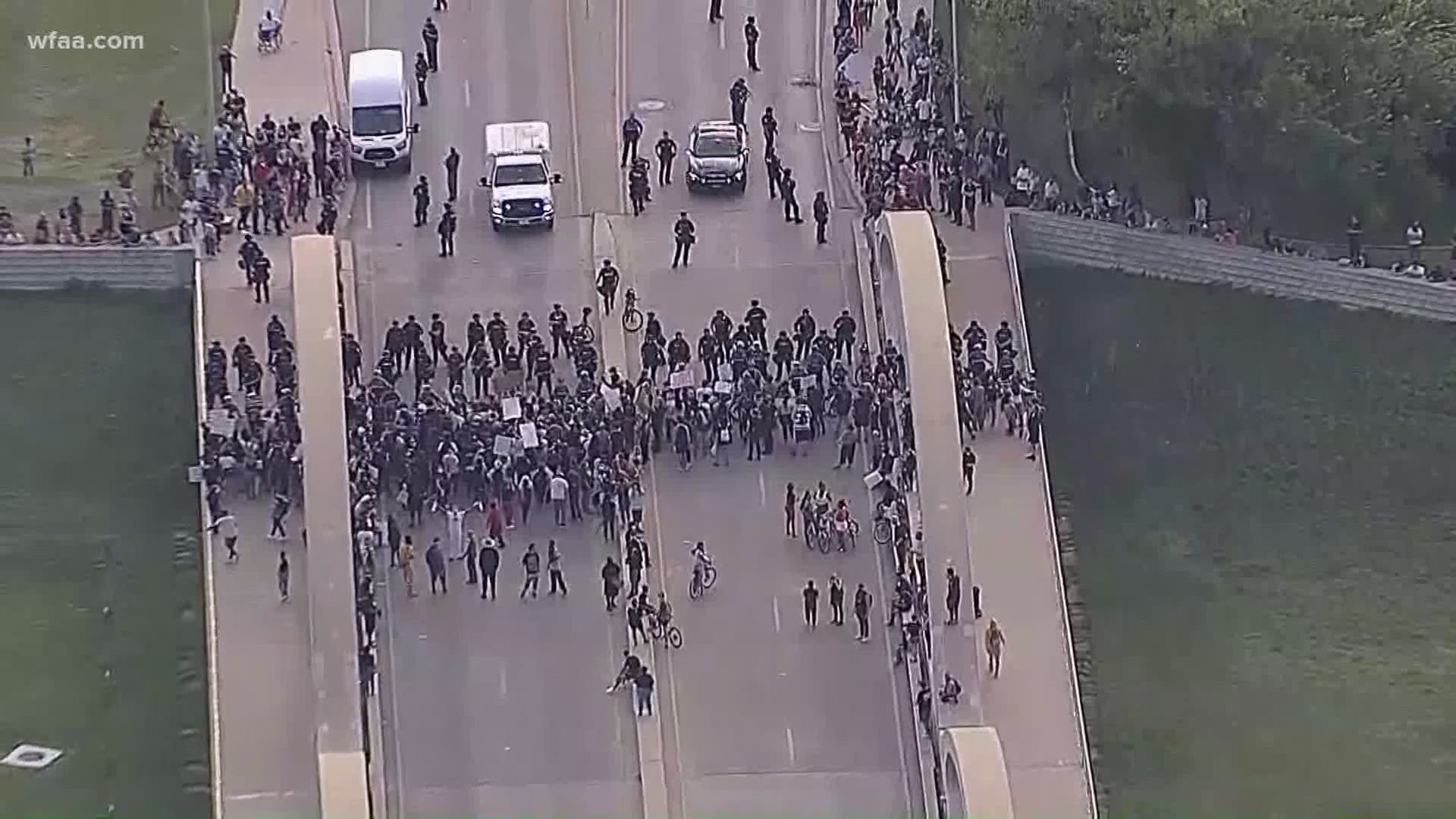FORT WORTH, Texas — For the first time in about 30 years, Fort Worth Police Chief Ed Kraus said they used gas to disperse a large crowd Sunday night during after some protesters hurled rocks, frozen water bottles and a pyrotechnic at police on the West 7th Street bridge.
The 300-person protest, which started downtown, had been peaceful, Kraus said, but he said officers started to hear that protesters were planning on causing damage to West 7th Street businesses. Officers blocked entry onto West 7th Street via the bridge and asked protesters to turn around. Kraus said about half the crowd did.
A standoff ensued with the remaining protesters, who he said started throwing rocks and frozen water bottles, and even bottles they believe were filled with bleach.
"At that point," Kraus said, "they deployed smoke...smoke and flash-bang [grenades]s in an attempt to get the crowd to disperse."
Then, Kraus said someone threw a pyrotechnic at police and then police made the decision to deploy gas.
"We take very seriously people's constitutional rights to assemble and peacefully protest. It's something we didn't want to interfere with," Kraus said Monday in a press conference. "In this instance, we were not given a choice by the actions of the group and we had to respond."
Protest organizer Donnell Ballard, president of United My Justice, said the instigators were not from his group.
RELATED: Live blog: Gov. Abbott to visit Dallas Tuesday to discuss state's response to protests, violence
"United My Justice," he said, "has nothing, nothing, to do with what happened at that West 7th Street Bridge."
"Our message of what we came to represent was completely gone," Ballard added.
In Fort Worth, that message is a complex one, Ballard said. Not only are people protesting the death of George Floyd; they're also protesting for Fort Worth's own.
In 2016, a white Fort Worth officer named William Martin physically took down a black woman named Jackie Craig after she called police during a dispute with a neighbor. Her case launched a city-wide Race and Culture Task Force that strongly suggested an independent citizens' review board of the police.
But before that could happen, in 2019, another white officer shot and killed Atatiana Jefferson in her own home on Fort Worth's south side. The officer went to her home because a neighbor called police to check on her, as her front door was open late at night. That officer, Aaron Dean, resigned from the force and was indicted for murder.
"I know they're trying their hardest to everything they can," Ballard said of the city and race relations, "but to me, they're not doing enough."
There have been other cases, too, that have contributed to a long history of racial tension. But the city's brand-new Police Monitor, Kim Neal, feels the city and its residents are headed in the right direction.
"In all of those community meetings," she said, referencing meetings she's had since coming on board this year, "everyone has consistently said they have confidence in the police department."
Fort Worth Mayor Betsy Price echoed that.
"The community at large, I would say, the trust is good with the police department," Price said.
The mayor condemned George Floyd's killing Monday, calling his death an injustice.
Peaceful protests are planned all week in Fort Worth, Ballard said. He said the protests will start earlier on Tuesday to comply with the city's temporary 8 p.m. curfew.

